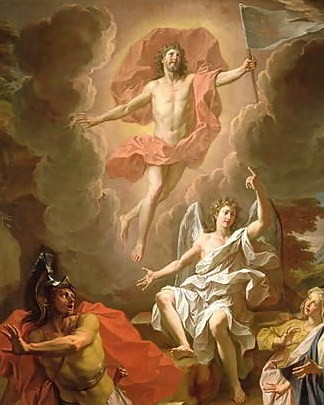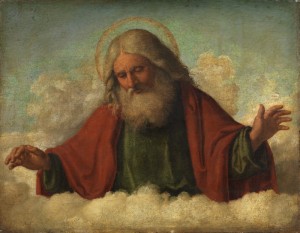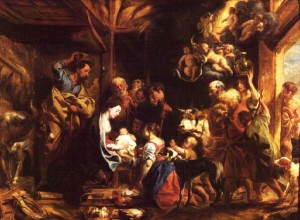This sermon, written by Reverend Maggie Wellert, was presented on Sunday, November 6, to the East Hills Moravian Church congregation in honor of Moravian Women’s Sunday. It was delivered by East Hills Moravian Church member Nancy Costa.
We’re going to start this morning by playing “Stump the Congregation.” See if you can figure out the source of this quotation:
“Before all things we have first agreed that we will care for one another together in the faith of the Lord Jesus, be established in the righteousness that comes from God, and abiding in love, have hope in the living God. “
For those of you who have been engaged in studying Romans the past few months through Women’s Fellowship, you probably guessed it came right out of Paul’s letter. It sure has all the key words: righteousness, faith, love, hope, living God. It sure could be Paul. But, it isn’t!
Maybe you think it sounds like the Moravian Covenant for Christian Living. It has the same quality, relationship with God that helps us manage our relationships with each other. It sure could be from the MCCL. But it isn’t!
It was written in 1464 by our ancestors in the Unity of the Brethren and is found in a publication entitled “Writing of the Brethren.”1 Here’s another one, this one by Brother Rehor, a founder of the Unity, who wrote this while in prison:
“We are people who have decided once and for all to be guided only by the gospel and the example of our Lord Jesus Christ and his holy apostles in gentleness, humility, patience, and love for our enemies.”2
We are part of a long tradition of recognizing the importance of wrestling with the gospel, wrestling with our God. This call to be a Christian is no easier now than it was in the first century when Paul was discerning this new life with early communities of faith. It is no easier now than it was in the fifteenth century when our ancestors in the Unity struggled with the call to follow Jesus, and what that call meant if they were no longer part of the Roman Catholic communion.
Eventually our Brethren relatives came up with a new way of understanding what is essential for living the gospel in the world. There are two sides to the essentials, the divine and the human. The essentials on God’s side are the grace of God who wills our salvation, the saving work of God in Christ, and the gifts of the Holy Spirit. The essentials that are our human response are quite simply—quite astoundingly—faith, love, and hope.
“The grace of God who wills our salvation, the saving work of God in Christ, and the gifts of the Holy Spirit…” Paul speaks at length about this amazing grace—the incredible love that God has for us. God’s passion for us is so profound that God chose to become one of us, leaving behind all that makes God, God. Jesus was born to Mary. Through the life, ministry, death, and resurrection of Jesus, we become brothers and sisters to Christ and to one another. Because of Christ’s work, we are healed of the brokenness of sin—we are reconciled, justified by grace through faith.
When Christ ascended to heaven, he promised the gift of the Holy Spirit, the Spirit who continues to move among us yet today; granting gifts to build up the church, the community of saints who are gathered to remember the grace, love, and gifts of God, and then scattered to share that same grace, love, and gifts with all of God’s creation; bringing God’s healing into the world.
The human response to all that God offers: faith, love, and hope.
Faith is our ability to trust in God’s grace. This is how we carry out the Great Commandment: Love the Lord your God with all your heart, all your soul, and all your might. ALL. Hear that fully…God wants our all.
And there is so much that gets in the way: distractions, fears, the voices of the world that call us to follow a different lord and god…not the Lord God, Father, Son and Holy Spirit. What is it that challenges you to keep God first in your daily walk? How do you respond to the voices that tempt and allure—to be first, to always win, to always have your way?
Love is taught first by God in Jesus, as if God wanted to say, “this is what love looks like walking around in human form.” What distinguished that walking around love? Jesus was full of compassion, paying attention to the needs and pain, the hunger of those he met daily; taking time to pray and be in touch with God in order to stay focused on his mission; taking time out for dinner with friends; holding children when no one thought children had a place in the center of things. Love looks like Jesus.
After speaking the Great Commandment, Jesus spoke of another commandment like it: Love your neighbor as yourself. That’s precisely what love looks like. And, Jesus wasn’t just talking about the people across the aisle here who look and act like us, who share our values and standards. Jesus was talking about the enemy; the people we don’t like so much; the ones who are annoying, disruptive, who don’t share our values and standards.
How do you respond in love to the many needs that appear at our door steps? Who will feed the hungry? Who will visit the sick? Who will care for the poor and the lonely, offer a word of encouragement to an outsider? How will you love the people sharing this worship space today? Perhaps you can write a card, offer the right hand of fellowship, offer a cup of coffee, or simply listen when another speaks.
Hope…ah, this is the Moravian way of living as declared in the Easter Morning Liturgy. We are Easter people. We audaciously walk to our cemeteries at Easter dawn, even to the grave of the most recently deceased among us, the place where our tears still flow and the wounds are still raw. We stand there and proclaim, death does not have the final word. We are people of hope; we live into the promises of God for the salvation of the entire planet. We will walk the path of love until there is no more pain…because we know that nothing, not even death, can separate us from the love of our God in Jesus Christ.
We live in hope because we daily experience the work of the Holy Spirit in our midst: when we think things have totally fallen apart and we don’t know how to go on, there is this little candlelight that glimmers—an unexpected person shows up to help with the funeral luncheon; a new voice sings with the choir; there are enough turkeys to fill the order for Thanksgiving baskets; that annoying person hugs you in a true spirit of love and you are renewed in your connection.
We live in hope because we live in faith, trusting in the power of God’s love, trusting that we are capable of living out a life of love, in spite of all the voices of hate, in spite of the distractions that threaten to lead us towards envy, loneliness, pain, depression, laziness, or whatever else is threatening you today.
Paul recognized the power of faith, love, and hope in the sacrament of Baptism. Baptism, he proclaims to the Romans, is a symbol of our new life in the Spirit. Our Liturgy for Baptism reflects that reality: called in grace; living in relationship with the Living God; united with Christ through grace and the power of the Holy Spirit; called to a life of faith and willing obedience.
As you wrap yourself around the reality of what God has done—the grace of God, the saving work of God, the gifts of the Holy Spirit—as you ponder this deep love of God for you, consider how you live out the human essentials of faith, love, and hope. Consider how you might renew your commitment to Christ.
The Rev. Maggie Wellert
Great Kills Moravian Church
Staten Island, NY
August 9, 2011





 In an age before supermarkets and seed catalogs the harvest season could be an anxious time of year. The quantity and quality of the
In an age before supermarkets and seed catalogs the harvest season could be an anxious time of year. The quantity and quality of the